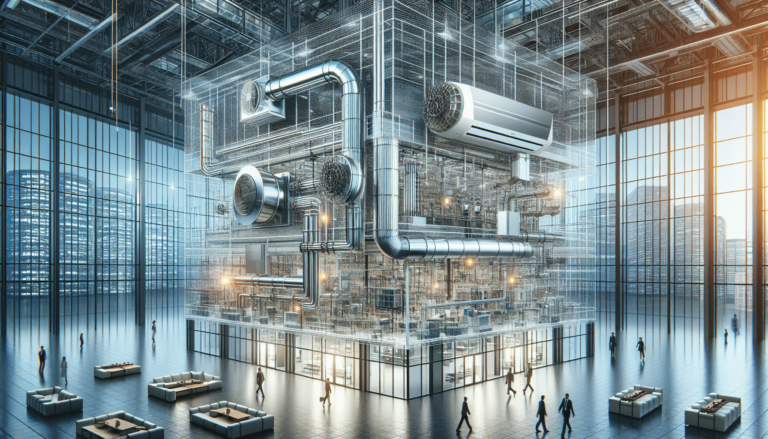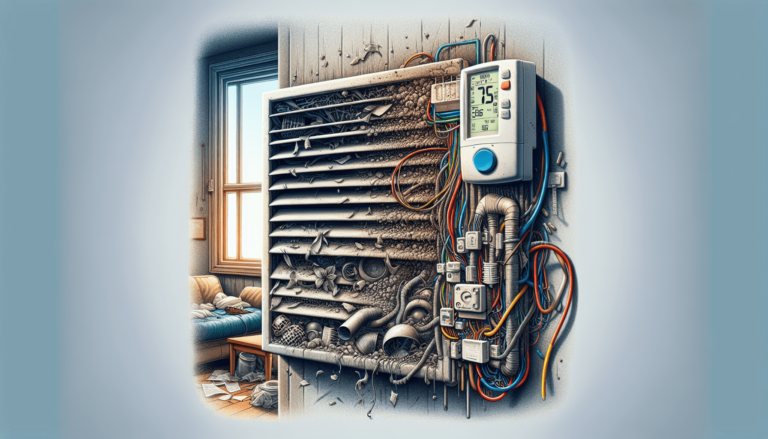

HVAC Services
Get Professional Repairs From The Area's Trusted HVAC Technicians. Ask About Our Services! We Offer Professional Heating & Cooling System Repairs And Guarantee Long-Lasting Results.
Got Question? Call us: (850) 678-2665Financing
Energy Audits: Understanding Your HVAC’s Consumption
Uncover the secrets of high energy bills by exploring your HVAC system's consumption. Discover efficiency tips to save money and help the environment today!

Have you ever wondered why your energy bills seem higher than expected every month? The culprit might be closer than you think—your HVAC system. Heating, ventilation, and air conditioning units are essential for comfort but can be the biggest energy hogs in a home or business. Understanding how much energy these systems consume, and how you can make them more efficient, is crucial for both your wallet and the environment.

What Is an Energy Audit?
A smart step toward understanding your HVAC’s consumption is conducting an energy audit. An energy audit is a comprehensive assessment of your energy use, pinpointing areas of inefficiency and suggesting improvements. Imagine it as a health check-up but for your home’s energy life.
The Purpose of an Energy Audit
The main goal of an energy audit is to identify how much energy your home consumes and spotlight opportunities for improved efficiency. Think of it as diagnosing where energy slips through the cracks. By addressing these issues, you can reduce costs and enhance comfort without drastic lifestyle changes.
Benefits of an Energy Audit
Investing time and occasionally money in an energy audit can provide multiple benefits. First, it can reduce energy costs by identifying precisely where you are losing energy. Second, it can make your home more comfortable by regulating temperatures more efficiently. Third, decreasing energy consumption benefits the environment.
Understanding HVAC Systems
An HVAC system regulates heating, cooling, and air circulation within buildings. Its operation significantly impacts your energy expenses. Let’s break down its components for better understanding.
Components of HVAC Systems
An HVAC system features several parts working together. The main components include heating units like furnaces or heat pumps, ventilation systems, and air conditioners. Each part has a specific role and contributes to the overall energy consumption of your home or office.
How HVAC Systems Consume Energy
Your HVAC system adjusts to external temperatures, humidity, and internal conditions to maintain a comfortable indoor climate. Each adjustment requires energy, making your HVAC one of the biggest contributors to your energy bill.
Identifying Energy Hog Components
Each element of your HVAC might not be equal in energy consumption. For instance, your air conditioner might be running too frequently due to improper insulation. Heating units might require more energy due to an outdated system. Identifying these hog components can significantly reduce energy wastage.
Conducting an HVAC Energy Audit
Undergoing an HVAC energy audit is easier than you might think. Here’s a roadmap to get started.
Prepare for an Energy Audit
Before beginning, gather copies of your past energy bills. This historical data can offer insight into spikes or steady patterns in energy consumption. Also, note any unusual temperature imbalances in your home, as they can be signs of inefficiency.
DIY vs. Professional Energy Audits
You have two main options for conducting an energy audit—do it yourself or hire a professional. DIY audits can be completed with tools found on various energy websites, while professional audits offer a thorough and detailed analysis using specialized equipment. Each has its pros and cons, including cost and accuracy considerations.
Steps in an HVAC Energy Audit
-
Inspect Insulation: Poor insulation can lead to significant energy loss. Check your home’s insulation in areas like attics, walls, and floors.
-
Check for Air Leaks: Identify and seal air leaks around windows, doors, and walls. Leaks force HVAC systems to work harder, using more energy.
-
Examine HVAC Equipment: Ensure your equipment is up-to-date and properly maintained. Replace outdated units if necessary.
-
Analyze Energy Usage: Use energy meters to monitor usage during peak hours. This monitoring helps in understanding when and why high consumption occurs.
-
Review Thermostat Settings: Optimize your thermostat settings. Consider setting it to a comfortable but energy-saving temperature.
After the Audit: Next Steps
Completing the audit is only half the work. Implementing the findings ensures you reap the benefits.
Implementing Energy-Saving Measures
Once the audit identifies problem areas, apply the suggested changes. You might upgrade your HVAC system or improve insulation based on what offers the best return on investment.
Maintaining Your HVAC System
Regular maintenance extends the life of your HVAC units and keeps them working efficiently. Schedule annual checks, replace filters, and monitor system performance for optimal operation.
Using Smart Technology
Consider using smart thermostats and HVAC system monitors. These devices automatically adjust settings based on usage patterns and weather conditions to maintain efficiency.
Behavioral Adjustments
You can make simple day-to-day changes to reduce energy use. For instance, opening windows on cool days can let in natural breezes, reducing reliance on air conditioners.

Conclusion: Monitoring Long-term Efficiency
Even after performance improvements, an energy audit should not be a one-time event. Monitor your HVAC system’s performance and track changes in energy bills. This ongoing analysis helps you spot new inefficiencies early.
Work with HVAC Professionals
If updates to your HVAC system are complex, working with professionals ensures proper installations and adjustments. Professional guidance maximizes the return from upgrades and minimizes errors in implementation.
Reaping Financial and Environmental Rewards
By understanding and controlling your HVAC consumption, you can enjoy lower bills while contributing to environmental conservation. You curtail excessive energy use, resulting in fewer emissions and a more balanced ecological footprint.
Controlling HVAC energy consumption is within reach and can significantly impact both your energy bills and environmental footprint. Tempacure Heating and Air Conditioning, located at 325 Cedar Ave S, Suite B, Niceville, FL 32578, offers expert guidance through their services. Call them at (850) 678-2665 or visit their website for more information.
Appreciating the energy your HVAC system consumes and taking action results in a balanced and comfortable home environment. Embarking on small changes today paves the way for significant savings tomorrow.







